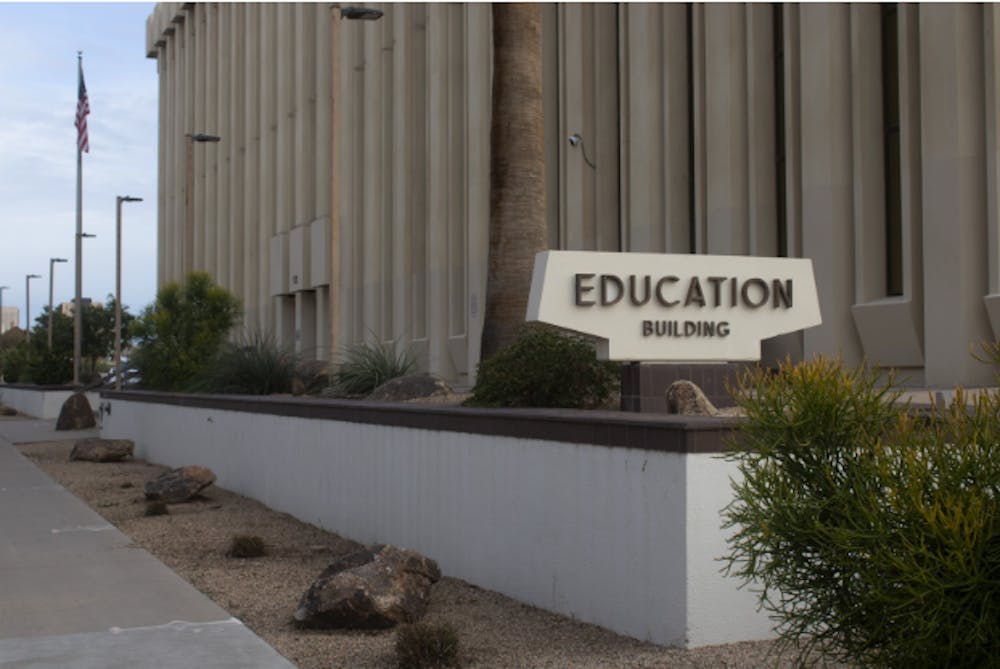PHOENIX— The Arizona Empowerment Scholarship Account program has surged to more than 92,000 students in the face of multiple controversies surrounding potential fraudulent uses of funds and the focus of the state's attorney general, Kris Mayes.
The ESA program, created in 2011, was originally founded to support children with disabilities and their families seeking educational resources outside of the public school system; however, ESA has expanded to be an option for all students in Arizona. As time has gone on, these funds have entered the spotlight with major reforms and expansions, slowly bringing to light alleged cases of individuals faking information to receive money for students who do not exist.
The money is a portion of what normally would be attributed to students by the state at public schools, intended to be used only on educational materials or resources. This can be especially important for disabled students, because they are allocated more money for their complex needs.
Courtney Burnett is a parent of a disabled student and a licensed advocate for students with disabilities.
“As an advocate, I see ESA as a lifeline for some families who really struggle to find a good fit within the public schools,” Burnett said in an email. “Especially for medically complex kids.”
The system is often flawed, with parents more often than not waiting months to hear back from the Arizona Department of Education. State Superintendent Tom Horne said in an August press release that the staff who reviews requests consists of just 12 people, the same number they had when the program was one-tenth its current size.
“Often, you wait weeks or months to get an email back, and invoices are auto-approved by a computer system that isn't overseen by a human,” Burnett said in an email. “I think there should be two departments in ESA, one for universal ESA and one for children with disabilities.”
Tyler Kowch is the communications manager for Save Our Schools Arizona, an organisation focused on public education in Arizona. Save Our Schools Arizona advocates for changes to be made to the ESA program, particularly for the population that uses their funds to seek private schooling for their students.
“The group that benefits the most from the universal voucher program is the wealthy families already enrolled in and affording private schools,” Kowch said in an email.
Approximately 75% of students receiving Universal ESA Vouchers do not have a history of public education, indicating that many of them were already attending private schools.
“The universal expansion has undoubtedly deprioritised the students with disabilities that the program was initially intended to support,” Kowch said in an email. “Because private schools are allowed full autonomy in admissions, students with disabilities may also have a harder time even finding a school that will accept them.”
Brandilyn Coon is a parent of a disabled child and an advocate in Phoenix, Arizona. She is the co-founder of Raising Voices Coalition, a non-profit seeking to create disability policy change in Arizona.
“My son has significant disabilities, and we reached a point where the public school system simply could not meet his needs or provide a free appropriate public education despite our best efforts to collaborate,” Coon said in an email.
For her family, ESA was the right choice, allowing them the flexibility to customise her son's education to meet his unique needs.
“ESA has tremendous potential to meet the needs of children with disabilities when used properly and supported with adequate guidance and oversight,” said Coon in an email. “Transparency and accountability are key to maintaining a healthy ESA program, but so is flexibility.”

ESA Program Controversies Amplify as Disabled Students Are Left Behind
Similar Posts
- — The Chandler International Film Festival Celebrates its 10-Year Anniversary; Driving Audience Connection
- — Chandler International Film Festival Day 3: Hitting Home Globally
- — The Chandler International Film Festival Opening Night: “Lo Que Dice El Corazón”
- — OPINION: Anaconda Hits More than it Misses
- — A Conversation with Ric Roman Waugh
